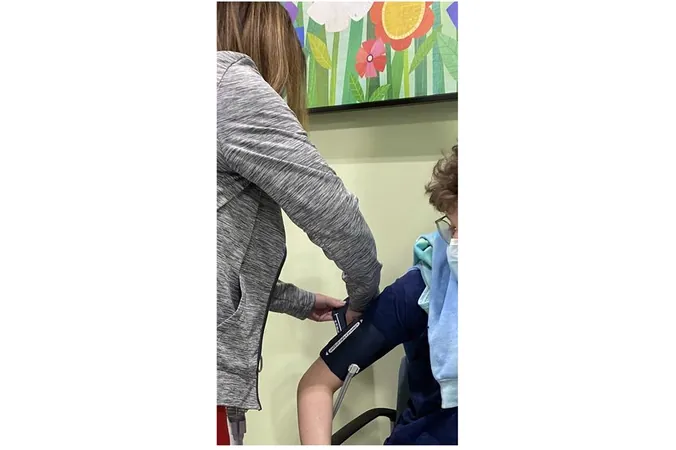
Shocking Link: High Childhood Blood Pressure Could Spell Danger for Your Heart Later in Life
2025-09-07
Author: Rajesh
The Startling Connection Between Childhood Blood Pressure and Adult Heart Disease
A groundbreaking study reveals that children with elevated blood pressure as early as age 7 face a significantly higher risk of succumbing to cardiovascular disease by their mid-50s. Alarmingly, those in the top 10% of blood pressure readings for their age, sex, and height are particularly vulnerable.
What the Research Shows: Facts You Must Know
The findings indicate that both elevated blood pressure (90-94th percentile) and hypertension (≥95th percentile) correlate with a staggering 40% to 50% increased risk of premature death from heart disease in adulthood. Researchers emphasize this underscores the necessity for regular blood pressure screenings in children and the promotion of heart-healthy habits from a young age.
A Call to Action: Monitor Your Child’s Heart Health!
Dr. Alexa Freedman, the study's lead author, expressed astonishment at the long-term implications of childhood hypertension. ‘The data compel us to prioritize blood pressure monitoring in young children as part of efforts to avert serious health problems later on,’ she stated.
Study Overview: How It Was Conducted
Conducted with a cohort of approximately 38,000 children whose blood pressure was recorded at age seven, the study tracked health outcomes until an average age of 54 years. Findings show a strong correlation between higher early blood pressure readings and an increased likelihood of dying from cardiovascular diseases.
The Numbers Tell the Story
By 2016, 2,837 participants had passed away, with 504 deaths attributed to cardiovascular conditions. Even moderately elevated readings (still within normal limits) were linked to a slightly increased risk, indicating that even minor elevations demand attention.
Family Matters: Sibling Studies Reveal Startling Insights
Further analysis of sibling pairs revealed that those with higher childhood blood pressure had a 15% and 19% increase in the risk of cardiovascular death compared to their lower-pressure siblings, hinting that inherited family traits or shared environments do not fully explain these outcomes.
Important Considerations and Next Steps
While these findings are crucial, the study does have limitations, such as relying on a single blood pressure measurement at the age of seven. The predominantly Black and White demographic of the participants also raises questions about the applicability of these results across diverse populations.
Final Thoughts: Be Proactive About Your Child’s Health!
This study is a wake-up call for parents to take their children’s blood pressure seriously, as monitoring these figures can lead to proactive measures that protect long-term heart health. With increased awareness and preventative action, we can alter these grim statistics and ensure healthier futures for our children.



 Brasil (PT)
Brasil (PT)
 Canada (EN)
Canada (EN)
 Chile (ES)
Chile (ES)
 Česko (CS)
Česko (CS)
 대한민국 (KO)
대한민국 (KO)
 España (ES)
España (ES)
 France (FR)
France (FR)
 Hong Kong (EN)
Hong Kong (EN)
 Italia (IT)
Italia (IT)
 日本 (JA)
日本 (JA)
 Magyarország (HU)
Magyarország (HU)
 Norge (NO)
Norge (NO)
 Polska (PL)
Polska (PL)
 Schweiz (DE)
Schweiz (DE)
 Singapore (EN)
Singapore (EN)
 Sverige (SV)
Sverige (SV)
 Suomi (FI)
Suomi (FI)
 Türkiye (TR)
Türkiye (TR)
 الإمارات العربية المتحدة (AR)
الإمارات العربية المتحدة (AR)